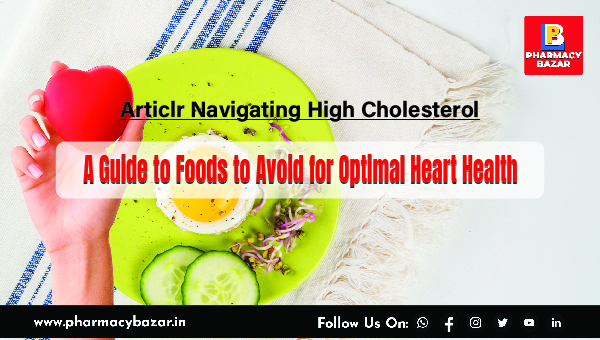Articlr Navigating High Cholesterol: A Guide to Foods to Avoid for Optimal Heart Health
Apr 24, 2024
Introduction:
In the intricate landscape of human health, cholesterol stands as a double-edged sword. While essential for vital bodily functions like hormone synthesis and cell membrane integrity, an excess of it can wreak havoc on our cardiovascular system. Elevated cholesterol levels pose a significant risk factor for a myriad of heart-related ailments, making it imperative to navigate our dietary choices with care. This article serves as a comprehensive guide to understanding which foods to avoid while combating high cholesterol, empowering individuals to make informed decisions for their heart health.
Understanding Cholesterol:
Before delving into the specifics, it's crucial to grasp the fundamentals of cholesterol metabolism. Cholesterol, a lipid molecule, plays a pivotal role in various physiological processes, including cell structure and signaling. However, when levels surge beyond the body's requirements, it can lead to the accumulation of plaque in arteries, predisposing individuals to conditions such as atherosclerosis and coronary artery disease.
Identifying Dietary Culprits:
A significant contributor to elevated cholesterol levels is the consumption of foods rich in saturated and trans fats. These dietary components not only raise levels of low-density lipoprotein (LDL) cholesterol, commonly known as "bad" cholesterol, but also diminish levels of high-density lipoprotein (HDL) cholesterol, the "good" counterpart essential for cholesterol transport and metabolism.
Processed Meat:
Indulging in processed meats like bacon, sausages, and ham may tantalize the taste buds, but it comes at a cost to cardiovascular health. Laden with saturated fats, these savory delights can impair the liver's ability to regulate cholesterol levels, paving the way for arterial plaque formation and cardiovascular complications.
Oils Containing Trans Fatty Acids:
The innocuous-seeming vegetable oils lining grocery store shelves may harbor a hidden menace: trans fatty acids. Through the process of hydrogenation, commonly employed to extend shelf life, these oils undergo transformation into a formidable adversary for heart health. Trans fats not only promote LDL cholesterol accumulation but also undermine the body's lipid balance, tipping the scales in favor of cardiovascular disease.
Shrimp:
While seafood, often lauded for its nutritional benefits, boasts an array of heart-healthy nutrients, not all options are created equal. Shrimp, though rich in protein and selenium, packs a hefty punch in terms of dietary cholesterol. Moderation is key when indulging in this crustacean delicacy, or alternatively, opting for omega-3 fatty acid-rich alternatives can confer cardiovascular protection without compromising cholesterol levels.
Sugar:
In the modern-day dietary landscape, sugar lurks in unsuspecting corners, concealing its detrimental effects on cardiovascular health. Excessive sugar consumption not only contributes to weight gain and insulin resistance but also exerts deleterious effects on lipid metabolism. Steering clear of sugary indulgences and opting for whole, unprocessed alternatives can safeguard against cholesterol derangement and its associated complications.
Red Meat:
The allure of succulent steaks and savory lamb chops may be irresistible, but frequent indulgence spells trouble for cholesterol management. Red meats like lamb, mutton, and pork are rife with saturated fats, driving up LDL cholesterol levels and amplifying the risk of cardiovascular morbidity. Embracing plant-based alternatives and lean protein sources can mitigate these risks, fostering a heart-healthy dietary pattern.
Conclusion:
In the battle against high cholesterol, dietary vigilance emerges as a formidable ally, offering a potent weapon in our arsenal for cardiovascular wellness. By steering clear of dietary pitfalls laden with saturated fats, trans fatty acids, and excessive sugars, individuals can chart a course towards optimal heart health. Embracing a diet rich in whole foods, plant-based fats, and lean protein sources not only promotes cholesterol equilibrium but also fortifies the cardiovascular system against the ravages of disease. Let us navigate the culinary landscape with prudence, mindful of the profound impact our dietary choices wield on our cardiovascular destiny.
DISCLAIMER: This article is the property of Pharmacy Bazar and is protected by copyright laws. The information provided in this article is for educational and informational purposes only and is not intended to be a substitute for professional medical advice, diagnosis, or treatment. Always seek the advice of a qualified healthcare provider with any questions you may have regarding a medical condition. Never disregard professional medical advice or delay in seeking it because of something you have read in this article. The author and publisher of this article do not endorse any specific treatments, procedures, or products mentioned in this article.
Recent Post
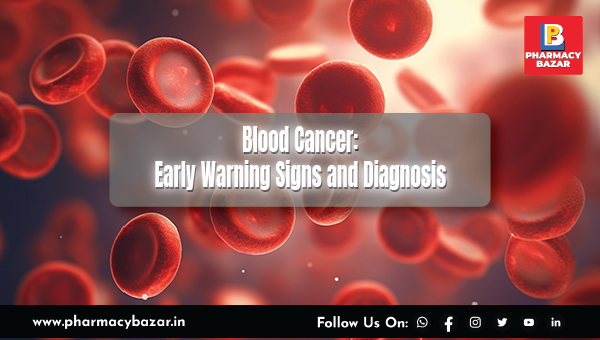
Blood Cancer: Early Warning Signs and Diagnosis
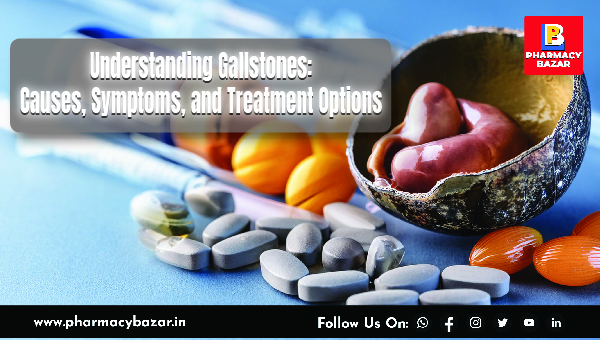
Understanding Gallstones: Causes, Symptoms, and Treatment Options
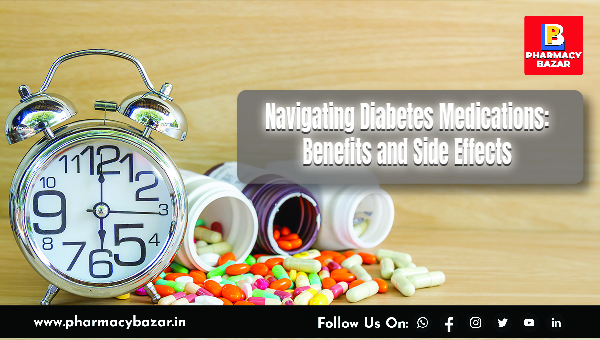
Navigating Diabetes Medications: Benefits and Side Effects

Revolutionizing Cancer Treatment: How Unleashing T Cells' Energy Could Transform Immunotherapy

The Power of Lower Back Stretches: Benefits and Best Yoga Asanas for a Healthy Spine
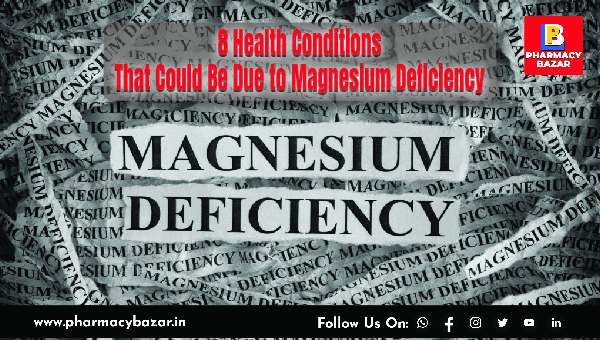
8 Health Conditions That Could Be Due to Magnesium Deficiency

Unlocking Brain Health: How Lifestyle Choices Impact Cognitive Functions

When Speech Takes a Surprising Turn: Unraveling Foreign Accent Syndrome

The Optimal Time to Take Your Vitamin D Supplement: Insights and Best Practices
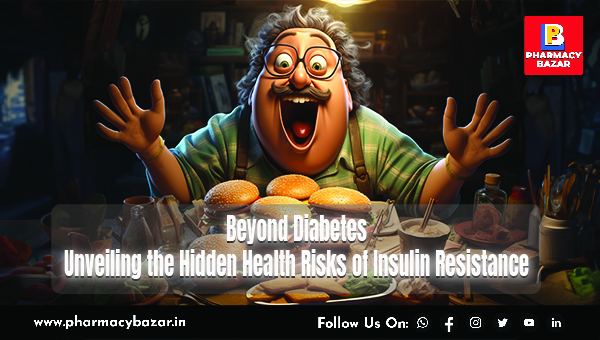
Beyond Diabetes: Unveiling the Hidden Health Risks of Insulin Resistance

